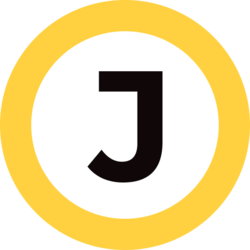In recent years, the gaming industry has witnessed a seismic shift with the rise of non-fungible tokens (NFTs). These unique digital assets offer players an unprecedented sense of ownership over in-game items, avatars, and other collectibles. Unlike traditional assets, where ownership is often limited or ambiguous, NFTs provide a transparent record of ownership and authenticity on the blockchain. More importantly, they open up new economic models where players can truly own and trade their assets, rather than being mere renters of a digital product. As the demand for such ownership grows, the complexities involved in purchasing NFTs have become a significant barrier for many gamers interested in leveraging this technology.
The recent partnership between Transak and Sequence represents a pivotal moment in addressing these barriers. Transak’s NFT Checkout service facilitates a more streamlined purchase process for users of the Sequence Marketplace. Traditionally, acquiring multiple NFTs required navigating a convoluted and often expensive transaction process, with each purchase incurring separate fees for gas and platform access. This not only discouraged players from exploring the NFT space but also created friction that could alienate potential users. By allowing for multiple NFT purchases in a single transaction while utilizing traditional fiat payment methods, Transak and Sequence are simplifying what was once a cumbersome experience.
At the heart of this partnership is a shared vision to transform the user experience in NFT acquisitions. With Transak’s integration, users can purchase NFTs just like they would in a conventional online store—adding multiple items to their cart and checking out in one seamless action. This innovation mirrors the familiar e-commerce model that players already understand, reducing the intimidation factor that often accompanies blockchain-related transactions. Taylan Pince, Chief Technology Officer of Sequence, encapsulated this sentiment by emphasizing the necessity for Web3 games to streamline NFT acquisition to penetrate mainstream markets effectively.
Safety and security in digital marketplaces cannot be overstated, especially as the NFT space has seen its share of scams and illicit activities. Transak’s NFT Checkout introduces a robust KYC (Know Your Customer) compliance framework that not only verifies user identity but also safeguards the marketplace from fraudulent practices. For users in authorized regions, the process is significantly simplified—requiring only basic information like a name and email address. This dual focus on accessibility and security promises to instill greater confidence in users, further encouraging adoption.
Affordability is another critical consideration explored through this partnership. Transak’s NFT Checkout allows users to make purchases starting from as low as $0.01, making it accessible for people with varying economic backgrounds to dip their toes into the waters of NFT ownership. This approach not only democratizes access to NFTs but also stimulates broader participation in digital asset economies. Yeshu Agarwal, Co-Founder and CTO of Transak, remarked on the importance of enabling users to acquire multiple NFTs in a single transaction, stating that this functionality could significantly enhance user experiences beyond initial expectations.
The combined efforts of Transak and Sequence represent a significant leap forward in making digital assets more accessible and user-friendly. With over five million users across 160 countries, Transak is not only reinforcing its commitment to Web3 payments but also amplifying the accessibility of NFTs in gaming. This collaboration could potentially reshape the landscape of digital asset transactions and improve user engagement across platforms. As technological advancements continue to evolve, partnerships like this may pave the way for the mainstream adoption of NFTs.
The integration of Transak’s NFT Checkout within the Sequence Marketplace serves as a vital step towards a more inclusive and simplified approach to NFT purchasing. By breaking down the barriers of complexity and high transaction costs, they are not just enhancing user experience but are also making the concept of true digital ownership more attainable. As the gaming and NFT ecosystems continue to grow, the significance of these innovations will undoubtedly shape the future of how we engage with digital assets. Through such developments, we may well see the dawn of a new era where NFT ownership becomes as commonplace as owning a traditional video game.



















Leave a Reply